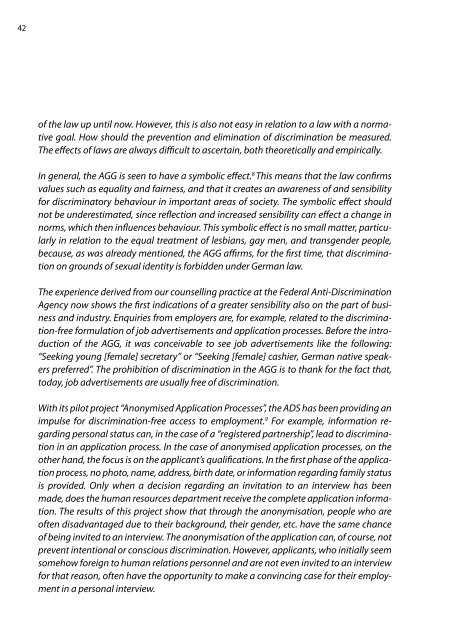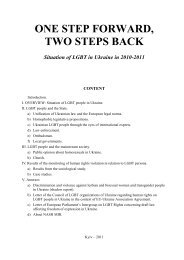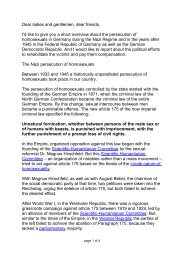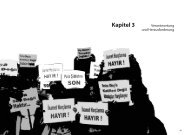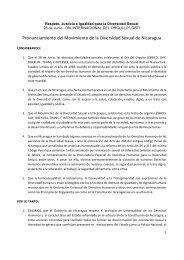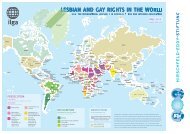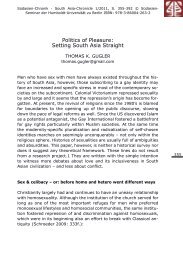Vom Verbot zur Gleichberechtigung - Hirschfeld-Eddy-Stiftung
Vom Verbot zur Gleichberechtigung - Hirschfeld-Eddy-Stiftung
Vom Verbot zur Gleichberechtigung - Hirschfeld-Eddy-Stiftung
Sie wollen auch ein ePaper? Erhöhen Sie die Reichweite Ihrer Titel.
YUMPU macht aus Druck-PDFs automatisch weboptimierte ePaper, die Google liebt.
42<br />
of the law up until now. However, this is also not easy in relation to a law with a normative<br />
goal. How should the prevention and elimination of discrimination be measured.<br />
The effects of laws are always difficult to ascertain, both theoretically and empirically.<br />
In general, the AGG is seen to have a symbolic effect. 8 This means that the law confirms<br />
values such as equality and fairness, and that it creates an awareness of and sensibility<br />
for discriminatory behaviour in important areas of society. The symbolic effect should<br />
not be underestimated, since reflection and increased sensibility can effect a change in<br />
norms, which then influences behaviour. This symbolic effect is no small matter, particularly<br />
in relation to the equal treatment of lesbians, gay men, and transgender people,<br />
because, as was already mentioned, the AGG affirms, for the first time, that discrimination<br />
on grounds of sexual identity is forbidden under German law.<br />
The experience derived from our counselling practice at the Federal Anti-Discrimination<br />
Agency now shows the first indications of a greater sensibility also on the part of business<br />
and industry. Enquiries from employers are, for example, related to the discrimination-free<br />
formulation of job advertisements and application processes. Before the introduction<br />
of the AGG, it was conceivable to see job advertisements like the following:<br />
“Seeking young [female] secretary” or “Seeking [female] cashier, German native speakers<br />
preferred”. The prohibition of discrimination in the AGG is to thank for the fact that,<br />
today, job advertisements are usually free of discrimination.<br />
With its pilot project “Anonymised Application Processes”, the ADS has been providing an<br />
impulse for discrimination-free access to employment. 9 For example, information regarding<br />
personal status can, in the case of a “registered partnership”, lead to discrimination<br />
in an application process. In the case of anonymised application processes, on the<br />
other hand, the focus is on the applicant’s qualifications. In the first phase of the application<br />
process, no photo, name, address, birth date, or information regarding family status<br />
is provided. Only when a decision regarding an invitation to an interview has been<br />
made, does the human resources department receive the complete application information.<br />
The results of this project show that through the anonymisation, people who are<br />
often disadvantaged due to their background, their gender, etc. have the same chance<br />
of being invited to an interview. The anonymisation of the application can, of course, not<br />
prevent intentional or conscious discrimination. However, applicants, who initially seem<br />
somehow foreign to human relations personnel and are not even invited to an interview<br />
for that reason, often have the opportunity to make a convincing case for their employment<br />
in a personal interview.


